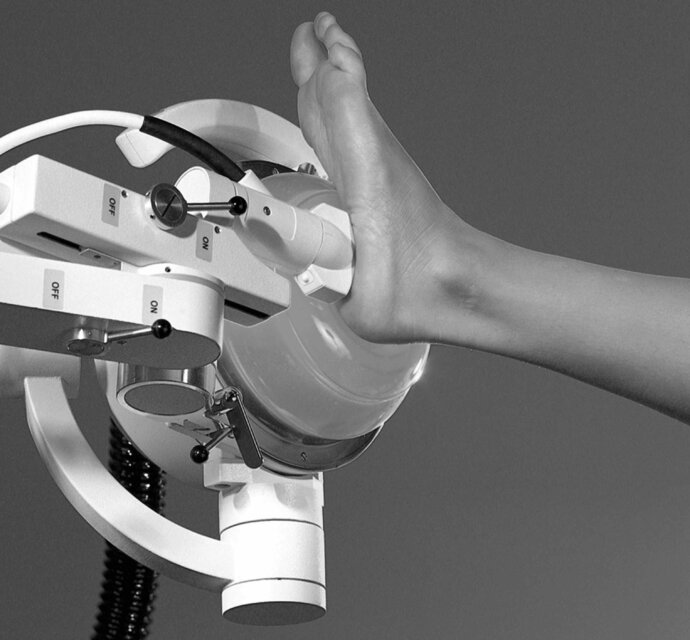Plantar fasciitis is a very painful condition where your heel may hurt, feel hot or swell. The pain is a result of inflammation or microscopic tears of the plantar fascia. The fascia is a thin layer of tough tissue supporting the arch of the foot.
Sometimes people refer to plantar fasciitis as “heel spurs,” but this is not generally accurate, since the heel spurs are a result of plantar fasciitis. Heel spurs are a calcification which forms due to the damage to the fascia.
Often when you have plantar fasciitis, the pain is at its most intense when you first get out of bed. Sometimes it is noticeable at the beginning of an activity and then gets better as the body warms up. Prolonged standing may cause pain, as well.
Severe plantar fasciitis pain can cause loss of time from work and may lead to partial or total disability. Common surgical procedures used for the treatment of chronic plantar fasciitis may also lead to permanent disability.
There are two phases of the condition. Fasciitis is inflammation. Inflammation alone can be treated with numerous conservative treatments. Anything that addresses rest and inflammation can be helpful. The doctor may use a steroid injection, strapping, taping, orthotics, or lasers in this phase. If the condition has moved on to phase 2, the tissue is damaged (microtearing), and needs to be repaired. For Phase 2 or chronic plantar fasciitis (fasciosis), high energy ESWT with the Dornier Epos Ultra is the only FDA approved device proven to create this repair without surgery.
The effects of ESWT are best documented in areas of changes in tissue density, such as those where a tendon attaches to a bone (enthesiopathies) and where a bone attaches to a ligament (desmopathies). For this reason, it is very effective for painful connective tissue in the heels. Additionally, ESWT gives new hope by relieving pain, eliminating the risk factors associated with surgery and allowing people to resume their normal lives.
Your condition is unique. We are here to help you find out if ESWT is right for you.
Contact us for a no pressure review of your case, an information packet, and an informational video.
I recommend this procedure to anyone who is suffering. It’s a miracle!!! Wish it could be applied everywhere you have pain!!!
”- Laura R., Middletown, NJ
